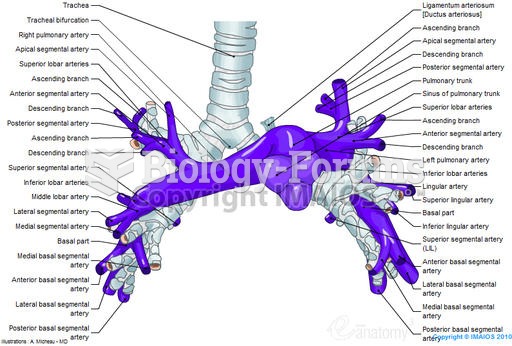|
|
|
Did you know?
Though “Krazy Glue” or “Super Glue” has the ability to seal small wounds, it is not recommended for this purpose since it contains many substances that should not enter the body through the skin, and may be harmful.
Did you know?
The oldest recorded age was 122. Madame Jeanne Calment was born in France in 1875 and died in 1997. She was a vegetarian and loved olive oil, port wine, and chocolate.
Did you know?
There are more nerve cells in one human brain than there are stars in the Milky Way.
Did you know?
There are more bacteria in your mouth than there are people in the world.
Did you know?
The people with the highest levels of LDL are Mexican American males and non-Hispanic black females.







